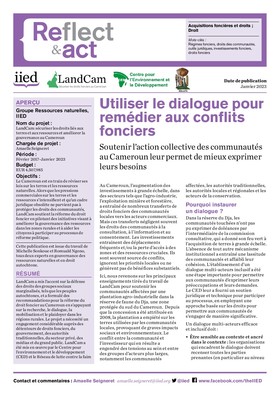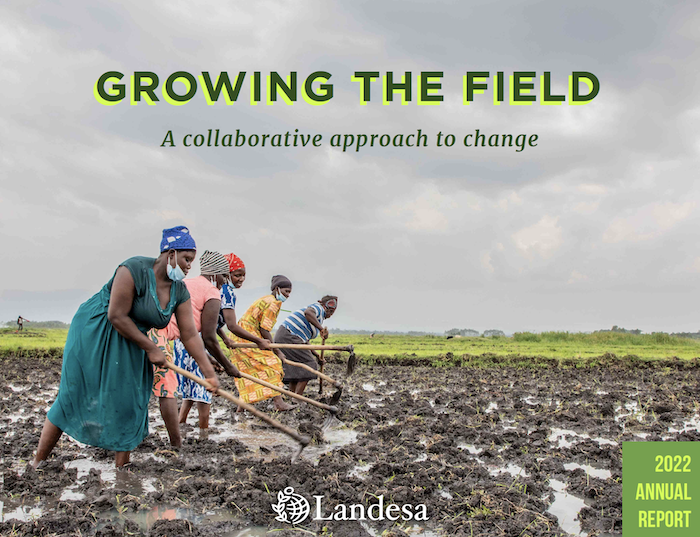Utiliser le dialogue pour remédier aux conflits fonciers
Au Cameroun, l’augmentation des investissements à grande échelle, dans des secteurs tels que l’agro-industrie, l’exploitation minière et forestière, a entraîné de nombreux transferts de droits fonciers des communautés locales vers les acteurs commerciaux. Mais ces transferts négligent souvent les droits des communautés à la consultation, à l’information et au consentement. Les investissements entrainent des déplacements fréquents et/ou la perte d’accès à des zones et des ressources cruciales.




